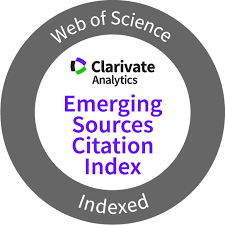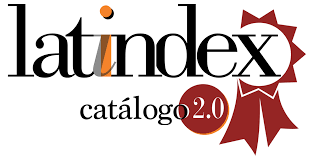Public Relations in the face of the global challenge of climate change
DOI:
https://doi.org/10.5783/revrrpp.v14i28.882Keywords:
Public Relations, climate changeAbstract
Climate change is increasingly critical, with impacts reflected in recent devastating weather events and biodiversity loss globally (Miller, 2007; Richardson et al., 2023; Edenhofer & Seyboth, 2013; Forster et al., 2023).
In recent years, concern about climate change has been incorporated into the public agenda, both for governments, organizations and society. For this reason, it is essential to involve all sectors of society in taking urgent action, as this is crucial to ensure the future of the planet and the next generations (Tsevreni et al., 2023). Governments worldwide are driving the adoption of new public policies to seek short-term solutions. Organizations have generated sustainable management practices, promoting greater environmental awareness and focusing on compliance with the various regulations and recommendations related to ESG criteria. As for society, there have been greater social movements to raise awareness and mitigate the negative impacts of man-made destruction since we inhabited this planet (Medina & Páramo, 2024).
Downloads
References
Ballantyne, A. G. (2016). Climate change communication: what can we learn from communication theory? Wiley Interdisciplinary Reviews: Climate Change, 7(3), 329–344. https://doi.org/10.1002/WCC.392
Edenhofer, O., & Seyboth, K. (2013). Intergovernmental Panel on Climate Change (IPCC). Encyclopedia of Energy, Natural Resource, and Environmental Economics, 1–3, 48–56. https://doi.org/10.1016/B978-0-12-375067-9.00128-5
Forster, P. M., Smith, C. J., Walsh, T., Lamb, W. F., Lamboll, R., Hauser, M., Ribes, A., Rosen, D., Gillett, N., Palmer, M. D., Rogelj, J., Von Schuckmann, K., Seneviratne, S. I., Trewin, B., Zhang, X., Allen, M., Andrew, R., Birt, A., Borger, A., … Zhai, P. (2023). Indicators of Global Climate Change 2022: annual update of large-scale indicators of the state of the climate system and human influence. Earth System Science Data, 15(6), 2295–2327. https://doi.org/10.5194/ESSD-15-2295-2023
Karacaoğlu, B., & Akbaba, M. F. (2024). Multidisciplinary Perspective: A Review of the Importance of Communication in Managing Climate Change Challenges. Environmental Research and Technology, 7(3), 457-470. https://doi.org/10.35208/ERT.1461700
Medina-Arboleda, I. F., & Páramo, P. (2024). Declaraciones de asociaciones profesionales en Latinoamérica sobre el cambio climático. Acta Colombiana de Psicología, 27(2), I-X. https://doi.org/10.14718/ACP.2024.27.2.0
Miller, G. (2007). Ciencia ambiental: Desarrollo sostenible, un enfoque integral, 8va edición, Editores Internacional Thomson, México.
Richardson, K., Steffen, W., Lucht, W., Bendtsen, J., Cornell, S. E., Donges, J. F., Drüke, M., Fetzer, I., Bala, G., von Bloh, W., Feulner, G., Fiedler, S., Gerten, D., Gleeson, T., Hofmann, M., Huiskamp, W., Kummu, M., Mohan, C., Nogués-Bravo, D., … Rockström, J. (2023). Earth beyond six of nine planetary boundaries. Science Advances, 9(37). https://doi.org/10.1126/SCIADV.ADH2458/SUPPL_FILE/SCIADV.ADH2458_SM.PDF
Schäfer, M. S., & Schlichting, I. (2014). Media Representations of Climate Change: A Meta-Analysis of the Research Field. Environmental Communication, 8(2), 142–160. https://doi.org/10.1080/17524032.2014.914050
Tsevreni, I., Proutsos, N., Tsevreni, M., & Tigkas, D. (2023). Generation Z Worries, Suffers and Acts against Climate Crisis—The Potential of Sensing Children’s and Young People’s Eco-Anxiety: A Critical Analysis Based on an Integrative Review. Climate, 11(8), 171. https://doi.org/10.3390/CLI11080171
Van Linden, S. L. D., Leiserowitz, A. A., Feinberg, G. D., & Maibach, E. W. (2015). The Scientific Consensus on Climate Change as a Gateway Belief: Experimental Evidence. PLoS ONE, 10(2). https://doi.org/10.1371/JOURNAL.PONE.0118489
Downloads
Published
How to Cite
Issue
Section
License
Copyright (c) 2024 Paul Capriotti Peri, Herlinda OrtIz Rodríguez

This work is licensed under a Creative Commons Attribution-NonCommercial-NoDerivatives 4.0 International License.
Authors publishing in this journal agree to the following terms:
a. Authors retain copyright and grant the journal the right to be the first publication of the work as licensed under a Creative Commons Attribution License that allows others to share the work with an acknowledgement of authorship of the work and initial publication in this journal.
b. Authors may separately enter into additional arrangements for non-exclusive distribution of the version of the work published in the journal (e.g., placing it in an institutional repository or publishing it in a book), with an acknowledgement of initial publication in this journal.
c. Authors are allowed and encouraged to disseminate their work electronically (e.g. in institutional repositories or on their own website) before and during the submission process, as it can lead to productive exchanges, as well as earlier and higher citation of published work (see The Effect of Open Access).





